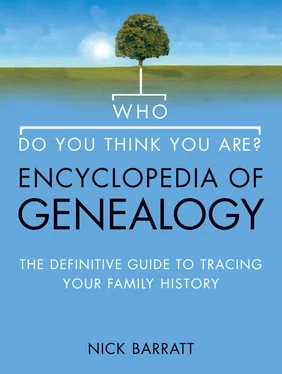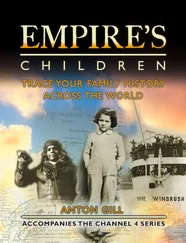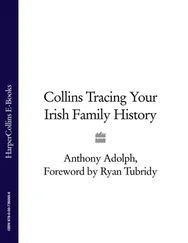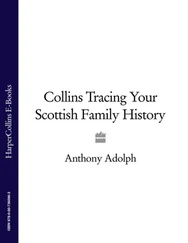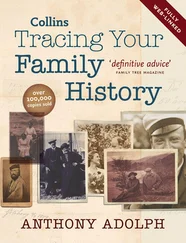‘If you publish your family tree on a website or online, be aware of the various copyright laws that protect information supplied to you by other researchers or publications.’
When incorporating online sources into your research it is vital that you cite those sources with the same attention to detail as you would for original documents from the archives. Include the full web address and details about the dataset or the owner of the site’s material. If you are considering publishing your family tree on a website or online using a family tree sharing facility, you must be cautious of the various copyright laws that protect information supplied to you by other researchers or publications. Any information you have found from databases online or on CD-ROM, or that has been supplied to you by other researchers’ websites, forum or mailing list postings, is protected by copyright, and therefore you should not replicate this data without first obtaining the owner’s permission.
Problems associated with online genealogy:
• Not all documents are available online; you’ll still have to visit archives
• Transcription errors in online indexes will make your search more difficult at times
• The Internet has no quality controls on entries; double-check all your sources
• Copyright law will still apply to all online sources you quote
The laws on Crown Copyright have recently been modified so that you can transcribe extracts from unpublished original documents found in archives as long as the full reference is quoted. The laws pertaining to copyright are complex and official advice can be found at www.ipo.gov.uk. You should also be very wary of posting information in your family tree about anybody who is still alive without first asking their permission. The laws on data protection are unlikely to be a problem to you, but you have a duty to protect the privacy of those who have been kind enough to help you with your research, and those relatives who may be unaware of your investigations into their past. Most family tree sharing sites automatically hide details about living relatives from other users until you have given your permission for specific users to view your tree, and Cyndi’s List has links on its GEDCOM page under ‘Privacy in GEDCOM files’ to programs that will remove living relatives from a GEDCOM file before uploading it to an online database.
Getting Help Offline
Problem Solving
Section Four provides a unique resource for all family historians – a structured route through some of the more popular but often technically difficult topics that you are likely to encounter during your investigations into your past. However, if the suggestions included in the Section Four guides can’t answer your questions, here are a few more tips and tricks to help get you back on track again – bearing in mind, of course, that there may not actually be a solution!
Each type of document will present its own unique set of obstacles that may hinder you from finding the person you are looking for. A birth in England or Wales in 1846 may not be found in the civil registration indexes, for example, because although civil registration began in 1837, the rules governing its enforcement were not tightened up until 1875, and many people simply didn’t bother. These specific problems will be addressed when each subject is explored in detail in Sections Two and Three, but there are more general issues that affect most types of records.
Changes in the way names and places have been spelt over time are a common hindrance to family historians. When registering the name of a birth or baptism, or even when filling out a census return, the priest, registrar or enumerator would write a name how they heard it said, and very often the informant was illiterate and so would not be able to correct them if it was spelt wrong. Therefore, if you cannot find an ancestor in alphabetical indexes under the name you were expecting, think of all the variations of spelling that name could sound like and conduct a search under those options too. Common variations occur when there is a silent letter, such as ‘e’ at the end of a name.
‘ If you cannot find an ancestor in alphabetical indexes under the name you were expecting, think of all the variations of spelling that name could sound like and conduct a search under those options too.’
Similar rules apply to the spelling of place names that have been known to change frequently over time, but you should also be wary of places around the country (and even the world) being called the same name. There are indexes, like F. Smith’s A Genealogical Gazetteer of England , that can help you to find in which counties a place name is found, and thus help you continue your research in the correct area.
There are plenty of useful reference books to help you with a particular line of historical research. Your local library will stock a range of publications on the subject, particularly specialist volumes that include indexes. There are also many genealogical journals and magazines released weekly and monthly, like Ancestors Magazine , The Genealogists Magazine , Family History Monthly and Family Tree Magazine and, of course, the Who Do You Think You Are? magazine. They are all packed with fascinating articles and top tips, discussing the latest finding aids, computer software and issues that affect the modern genealogist. A lot of these magazines also have a genealogy agony aunt who will answer readers’ research questions.
If, at any point during your research, you feel daunted by the next step, or have hit a brick wall on a certain line of enquiry, there are a multitude of individuals and societies out there that can be of assistance. Whatever your problem, it is likely that others have ground to a halt for similar reasons before you but have eventually found a route forward. Very few research problems are unique in genealogy, and as you find your way around one obstacle you will be able to use that experience as a lesson for the next time you get stuck. Even if you are confident researching your family tree alone, it is still advisable to join one of the many family and local history societies that we are lucky enough to have access to in the UK. You will always learn something from the experience other members have to offer, and be able to utilize the indexes, transcriptions and local projects that they have worked upon and which may not be available anywhere else.
There is a small charge to join a society, but the talks they offer to members, the networking they provide between researchers, the regular journals that are issued and their access to indexes unique to their subject matter make it all worth while. You should join a history society local to the area your ancestors were from so that you can benefit from the expertise of others who have researched that area and are compiling indexes for records relevant to that location. The Federation of Family History Societies (FFHS) is the umbrella organization that unites and represents all of the smaller societies around England, Wales and Ireland. You cannot join the FFHS itself, but you can consult their website at www.ffhs.org.uk to find a family history society local to you. The Scottish Association of Family History Societies (SAFHS) provides a similar network for family history societies in Scotland, and its membership list can be searched from www.safhs.org.uk. The GENUKI website also has a page for locating societies geographically, with links to each society’s website.
The range of history societies open to genealogists from around the world is staggering – take any topic you can think of and you are likely to find that a society has already been established to unite and aid researchers in that field of study. In addition to the hundreds of regional societies, there is a range of organizations that interest themselves in particular industries, professions and occupations. The Railway Ancestors Family History Society may be of benefit if you find an ancestor who worked in that profession; the Society for Army Historical Research could be worth joining if you have a long line of military ancestors in your tree. Societies dedicated to researching certain ethnic or religious groups also exist, such as the Romany and Traveller Family History Society, the Jewish Genealogical Society of Great Britain, and the Catholic Family History Society.
Читать дальше
